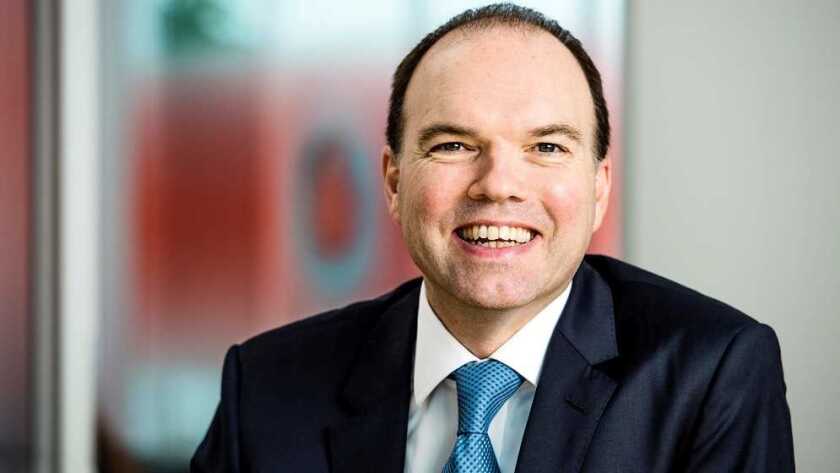Adjusted EBITDA for the period also grew by 2.6% to €14.9 billion, indicating a successful revenue progression and cost programme.
At the same the company’s free cash flow grew by 12.2% to €4.9 billion and is due to by ‘disciplined capital management’.
“Vodafone has delivered a good financial performance - growing revenue, adjusted EBITDA and free cash flow - whilst building strong commercial momentum through the year and executing at pace on our strategic priorities,” said Nick Read (pictured), Vodafone’s group chief executive.
“We have also continued to invest in our fixed and mobile Gigabit network infrastructure and digital services, to provide faster speeds for our customers, as well as successfully managing the recent surges in demand.
“The services Vodafone provides are more important than ever and we are committed to playing a key role in society’s recovery to the ‘new normal,” adds Read.
On the subject of Covid-19, Vodafone has followed in the footsteps of Telefonica, Orange and BT, suspending its much of its FY21 guidance saying:
‘Given the uncertainties and impacts [of Covid-19] we are not able to provide Adjusted EBITDA guidance for FY21 and guidance will be limited to free cash flow (pre-spectrum).“
“However, based on the current prevailing assessments of the global macroeconomic outlook, Adjusted EBITDA for FY21 may be flat to slightly down, compared to a rebased FY20 baseline of €14.5 billion."
"Vodafone’s relative resilience to the lock-down has provided short term relief, but most investors eyes are now focused on which stocks will perform best as the world progressively moves out of lock-down and life returns to a new normal," said Dan Ridsdale, global head of TMT, Edison Investment Research.
"Vodafone’s stable revenue profile means that any impact is unlikely to be significant either way, but on balance, the longer term impacts of reduced spending power and mobility are likely to be headwinds."
Interestingly, Vodafone was in position to pay its shareholders a dividend of €0.09, unlike the likes of BT, which had to withhold 2019/20 final dividend and all dividends for 2020/21.
The company has also felt the impact of the pandemic on its roaming revenues due to “lower international travel” adding that it anticipates “economic pressures to impact our customer revenues over time”.
On a positive note, the company is also experiencing “significant increases in data volumes and further improvements in loyalty, as our customers place greater value on the quality, speed and reliability of our networks”.






